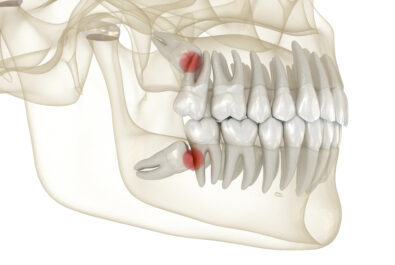Temporomandibular joint syndrome, or TMJ, can be the cause of multiple other symptoms (such as headaches) in your body – but how do you know if you’re suffering from TMJ, not something else?
- True or False: If my jaw pops frequently, I have TMJ.
- True or False: I suffer from migraines – it’s probably caused by TMJ.
- True or False: My jaw muscles are constantly sore, I have TMJ.
Answer Key:
- One of the most common symptoms of temporomandibular join syndrome is popping of the jaw. In fact, if you find your jaw locking when you open your mouth wide like you’re going to yawn, chances are it is TMJ. The temporomandibular joint actually connects your jaw to your skull, so when it’s strained (especially if you’re stressed and clenching your muscles frequently) it becomes inflamed and begins to cause issues with the bones surrounding it.
- Although you can get headaches from TMJ, it is not the sole cause of migraines. Headaches that are related to joint problems will typically be in the morning because people who suffer from issues with their bite and jaw will usually grind their teeth or clench their jaw muscles throughout the night. So, a migraine does not necessarily mean that you have TMJ.
- Although you may not necessarily have TMJ just because your jaw muscles are sore, even though a sore jaw is one of the biggest symptoms relating to TMJ. On top of the tenderness of your jaw, if you are feeling other soreness around your face, neck, shoulders then chances are you do have TMJ.
If you are experiencing symptoms of Temporomandibular joint syndrome, give us a call – we’re happy to take a look!














